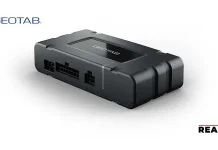GE HealthCare announced US FDA 510(k) clearance of Precision DL – a new, revolutionary deep learning-based image processing software included in GE HealthCare’s growing Effortless Recon DL portfolio. Precision DL provides the image quality performance benefits typically associated with hardware-based Time-of-Flight (ToF) reconstruction, including improved contrast-to-noise ratio, contrast recovery, and quantitative accuracy.
Together, the availability of Precision DL with Omni Legend’s ultra-high sensitivity, third generation digital detector technology marks a new era for PET/CT performance and outcomes, transitioning from ToF technology to the next generation of PET/CT performance and enabling clinicians to decode coincidence events at exceptionally fine resolutions for informed diagnoses and treatment planning.
“We can’t treat what we don’t see, which is why we require precise image quality to help diagnose, plan treatment for, and monitor disease,” explains Prof. Flavio Forrer, MD, PhD, Chairman of Nuclear Medicine in the Division of Radiology and Nuclear Medicine at Kantonsspital St. Gallen in Switzerlandvii. “Precision DL enhances image quality – enabling us to spot small lesions, including on images obtained with very low dose injections and short bedtimes, to potentially start treatment and monitoring early, which might result in improved patient outcomes. Additionally, Omni Legend offers a streamlined, simple solution that helps enable technologists to increase efficiency, enhance patient care, and reduce potential radiation exposure to medical staff .”
Medical imaging is a crucial tool for diagnosing disease, identifying a course of treatment, and determining whether therapy is successful for millions of patients around the world. Image quality matters – to the clinician and the patient – making the difference between finding a small lesion early or in its later stages, potentially affecting patient outcomes and disease management. For this reason, clinicians are increasingly adopting AI-based solutions for enhanced image quality compared to that of standard care.
A subset of AI and machine learning, deep learning utilizes deep neural networks, which consist of layers of mathematical equations and millions of connections and parameters that are trained and strengthened based on the desired output. In doing so, deep learning is a significant leap forward in efficacy compared to previous processes that require more human intervention, handling complex models and vast numbers of parameters with ease to help provide clinicians the time and insights they need to more confidently diagnose and care for patients.
SOURCE: Businesswire



